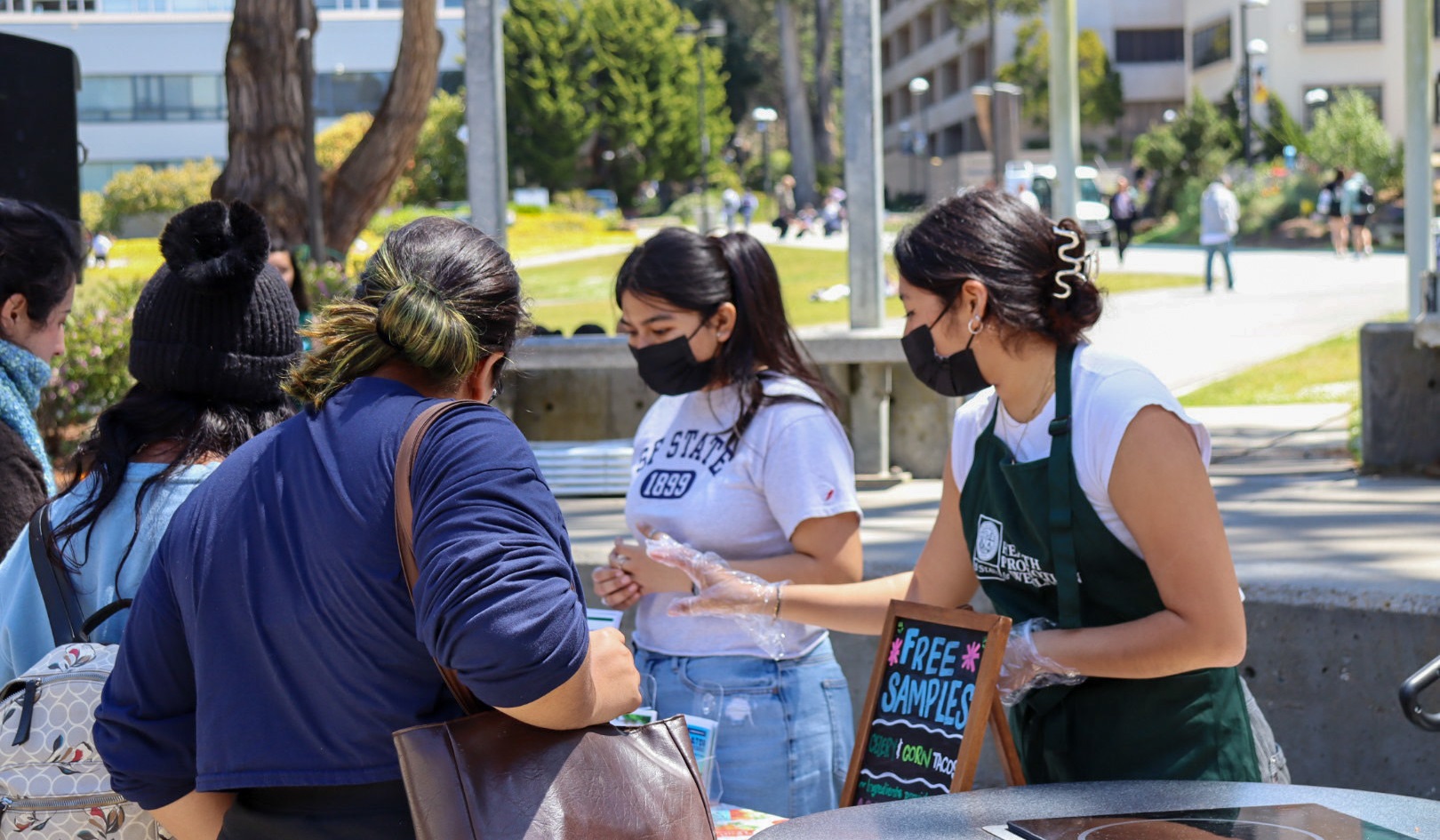
Multicultural Wellness
Multicultural Wellness develops compassion and consideration for others’ perspectives and cultures.
- Respecting and learning about other cultures
- Developing interpersonal relationships
- Learning more about the cultures you identify with
- Educating yourself and asking questions to learn more about a friend’s culture
Social Wellness
Social Wellness allows us to maintain healthy relationships with peers, friends, family, and partner(s). It’s all about caring for others and letting others care about you.
- Making an effort to keep in touch with others
- Participating in group discussions and practicing active listening
- Joining a student organization or getting involved on campus
- Volunteering in the community
- Hanging out with people you enjoy spending time with
- Taking time to be sexual with yourself or with partner(s)
- Setting limits with your friends and loved ones if you need “me time”
Intellectual Wellness
Intellectual Wellness encourages us to engage in mentally stimulating activities and requires lifelong learning and curiosity.
- Picking up a new hobby
- Studying abroad or traveling
- Taking a class outside of your major
- Reading for pleasure
- Learning another language
- Engaging in something creative
- Reading a book or listen to a podcast that is unrelated to school or work
- Going to an art museum, history exhibit, sports event, or theatre performance
Emotional Wellness
Emotional Wellness involves awareness of your feelings, values, attitudes and response to everyday interactions. This also includes developing empathy for others, and seeking help and support when you need it.
- Practicing gratitude
- Taking care of your body by eating, being active, and sleeping
- Writing in a journal
- Taking a break from your phone
- Doing activities that make you laugh
- Decluttering your living space
- Allowing yourself to cry
- Taking a deep breath
- Boosting your mood with aromatherapy
- Sharing your thoughts and feelings with someone you trust or consider seeing a mental health professional
- Spending time with people you value, and who value you
Physical Wellness
Physical Wellness encourages us to care for our bodies by staying healthy and taking preventive measures to maintain our health for the future.
- Finding time to move your body for at least 30 minutes a day
- Eating foods that make you feel good and drinking water
- Maintaining a regular sleep schedule and getting between 7-9 hours of sleep each night
- Practicing safer sex and getting yourself tested for STIs, including HIV
- Washing your hands and getting regular check-ups
- Taking time to heal when you’re sick
- Avoiding excessive use of substances that can harm your body
- Embracing your unique body
Occupational & Financial Wellness
Occupational & Financial Wellness focuses on understanding your strengths and interests for your career and developing your skills to manage finances.
- Setting realistic career and budget goals for yourself and working towards accomplishing these goals
- Opening a savings account – add a small monthly automatic payment, if possible
- Starting with small budget changes that will add up over time
- Spending time once a month and review your finances and budget
- Applying for Financial Aid and scholarships, understanding your student loans
- Writing a list before you go shopping
- Striving for balance among school, work, family, relationships, social life, and rest
- Reflecting on what you enjoy and value in a career
- Networking with people in your career
- Connecting with a mentor in your field of study or career
Environmental Wellness
Environmental Wellness cultivates an awareness of how both the natural and built environment impact you, as well as how your behavior impacts the Earth.
- Spending time outdoors
- Soaking up the sun (and wear SPF!)
- Starting your own garden, even if it’s a rock garden
- Picking up trash.
- Using reusable bags and water bottles
- Being mindful of your water use
- Going to the farmer’s market
- Turning off lights and computers
- Donating unwanted clothing or upcycling them
Spiritual Wellness
Spiritual Wellness helps you find purpose, value and meaning in your life with or without religion
- Learning more about yourself and your purpose
- Exploring your inner self
- Meditating or practicing mindful relaxation
- Practicing acceptance
- Being curious
- Looking for a religious faith that aligns with your values
- Traveling and experiencing other cultures
- Finding spiritual connection or community
- Identifying what is meaningful to you and notice its place in your life